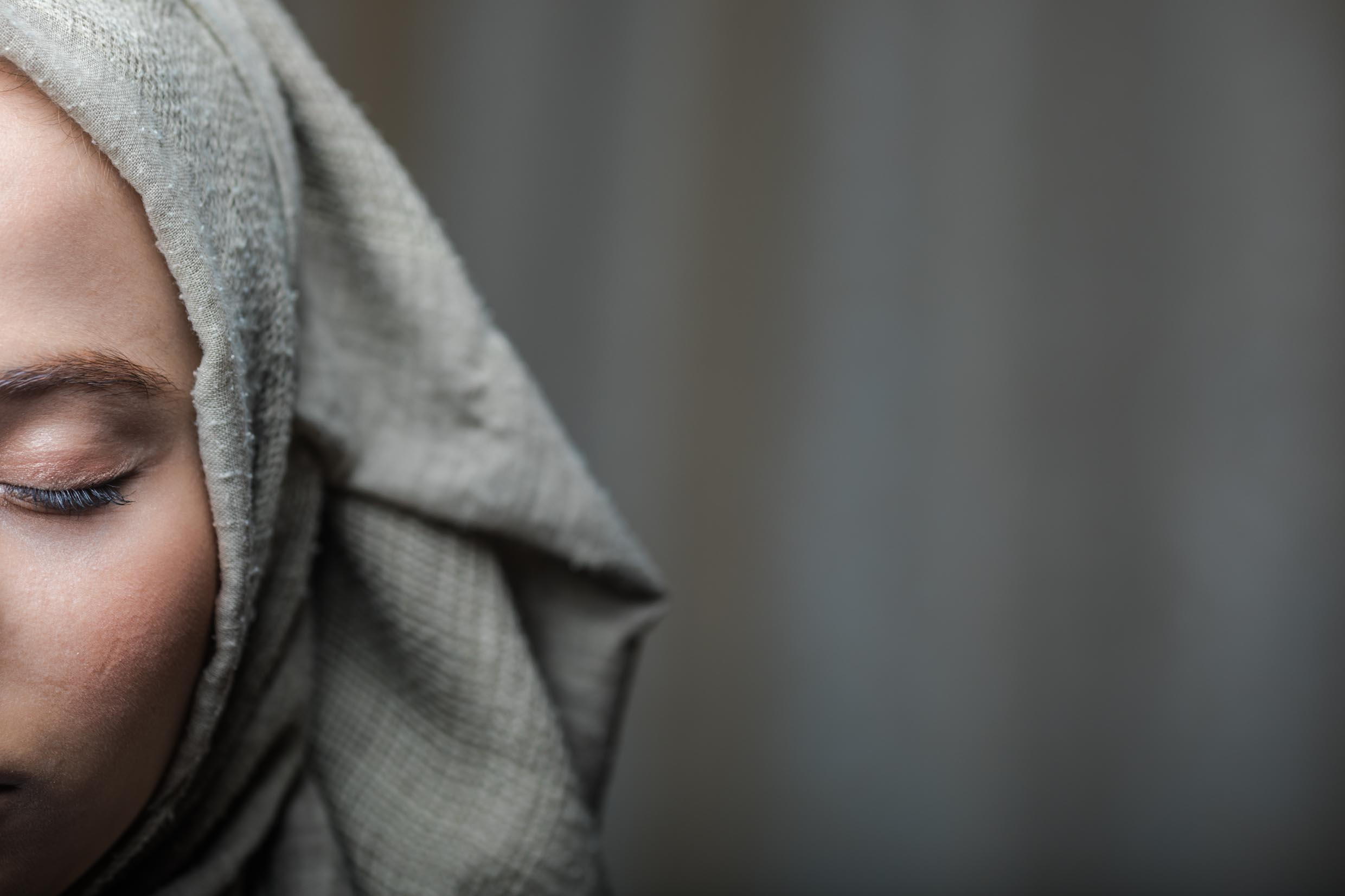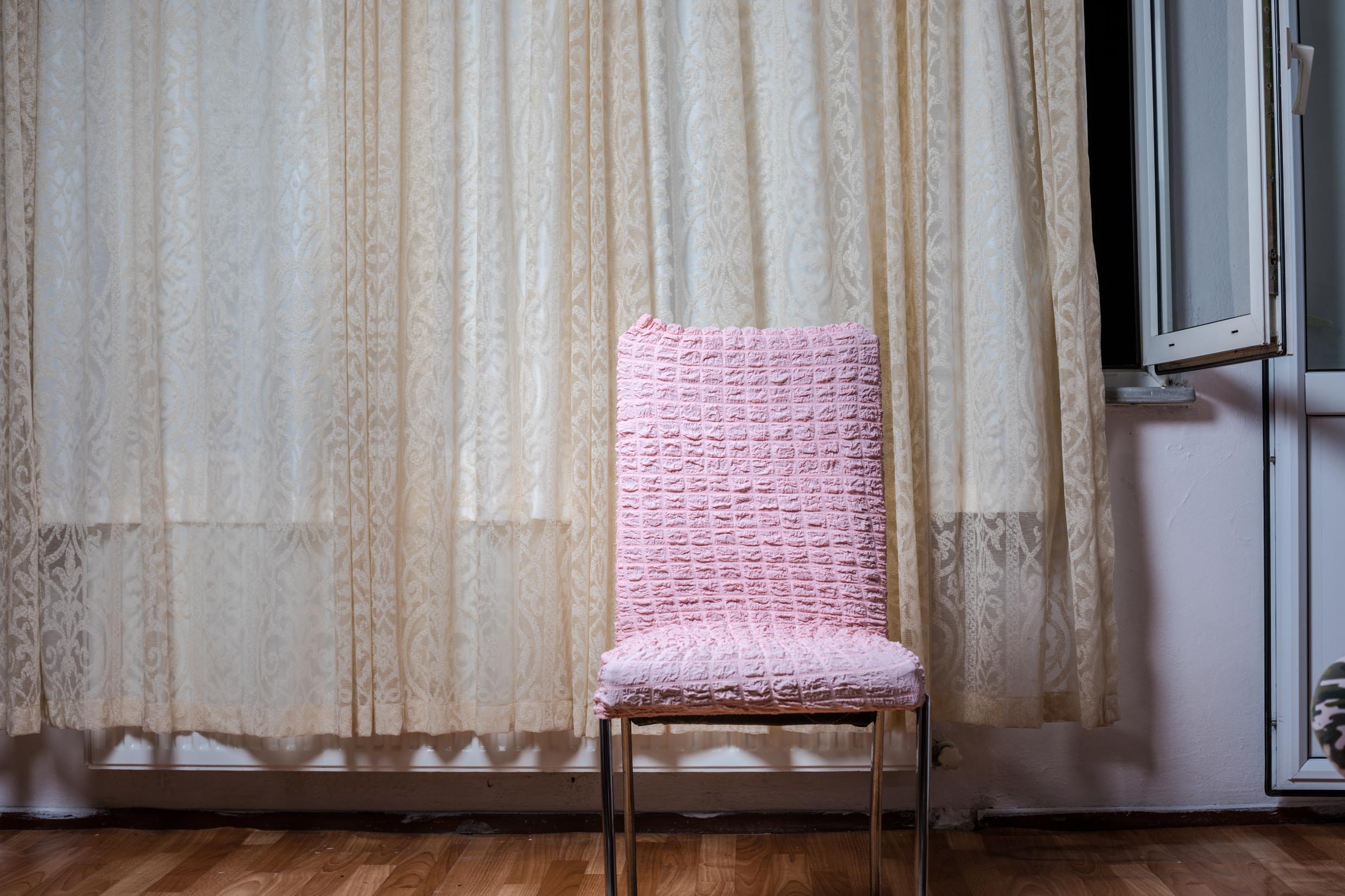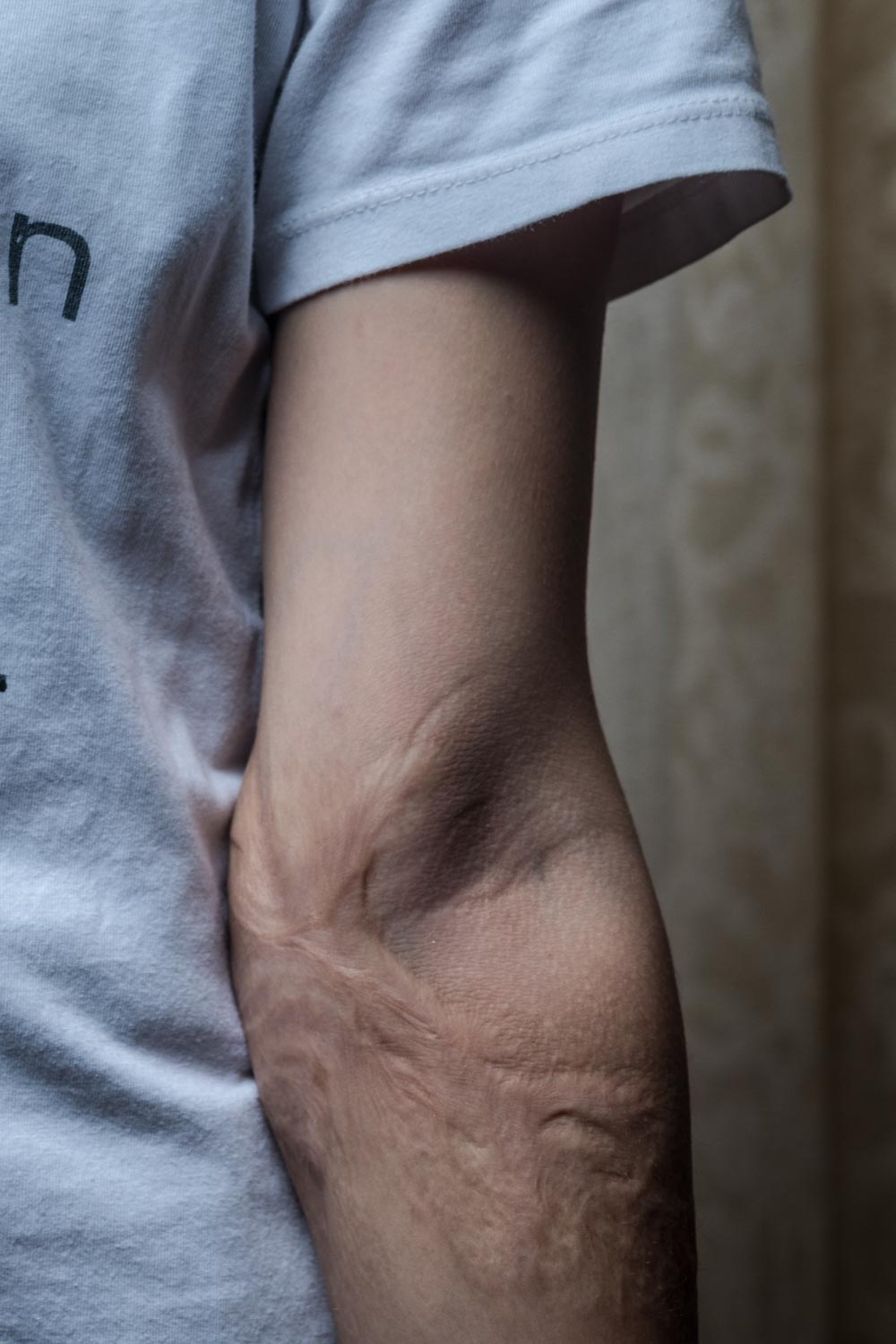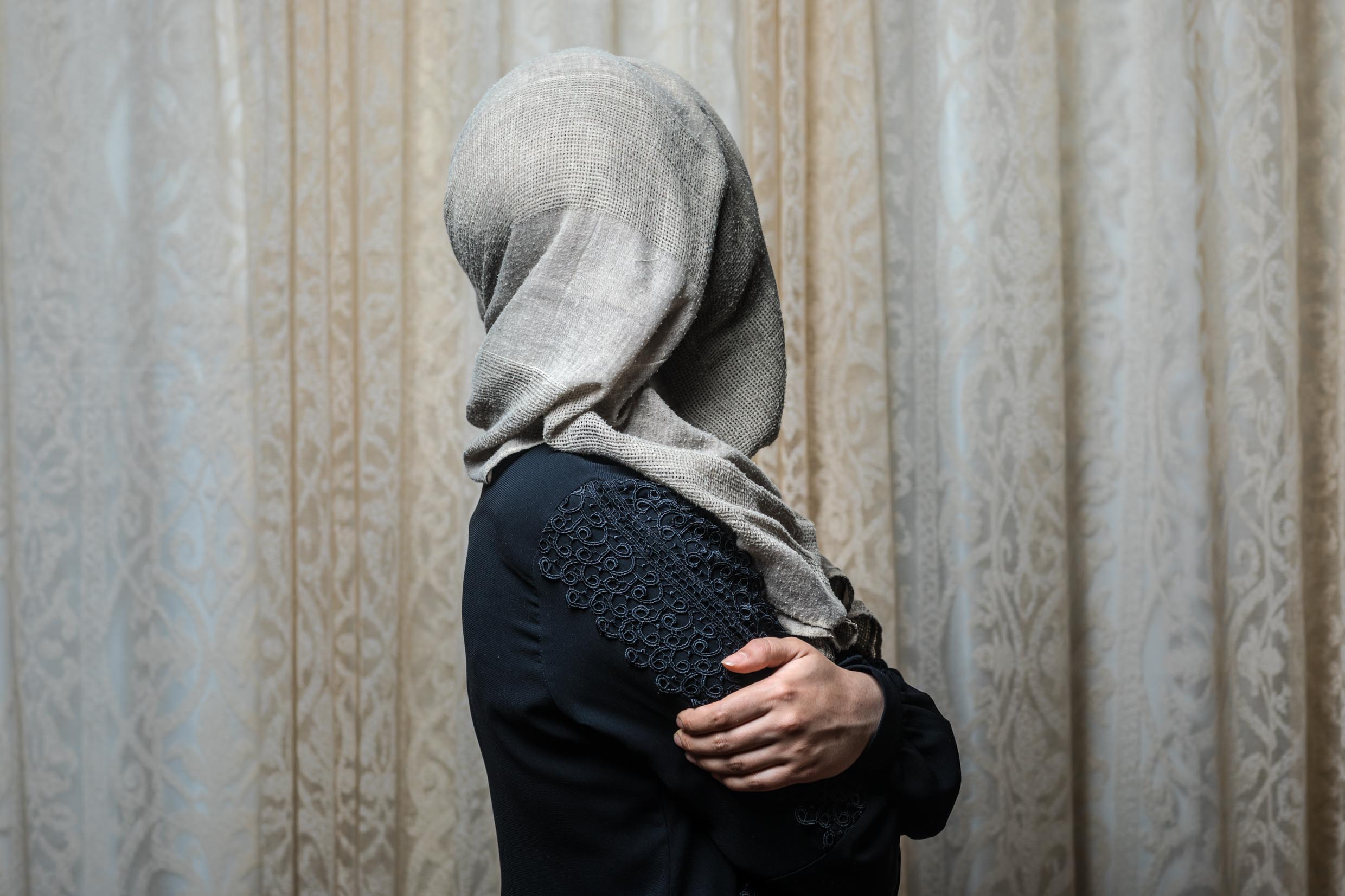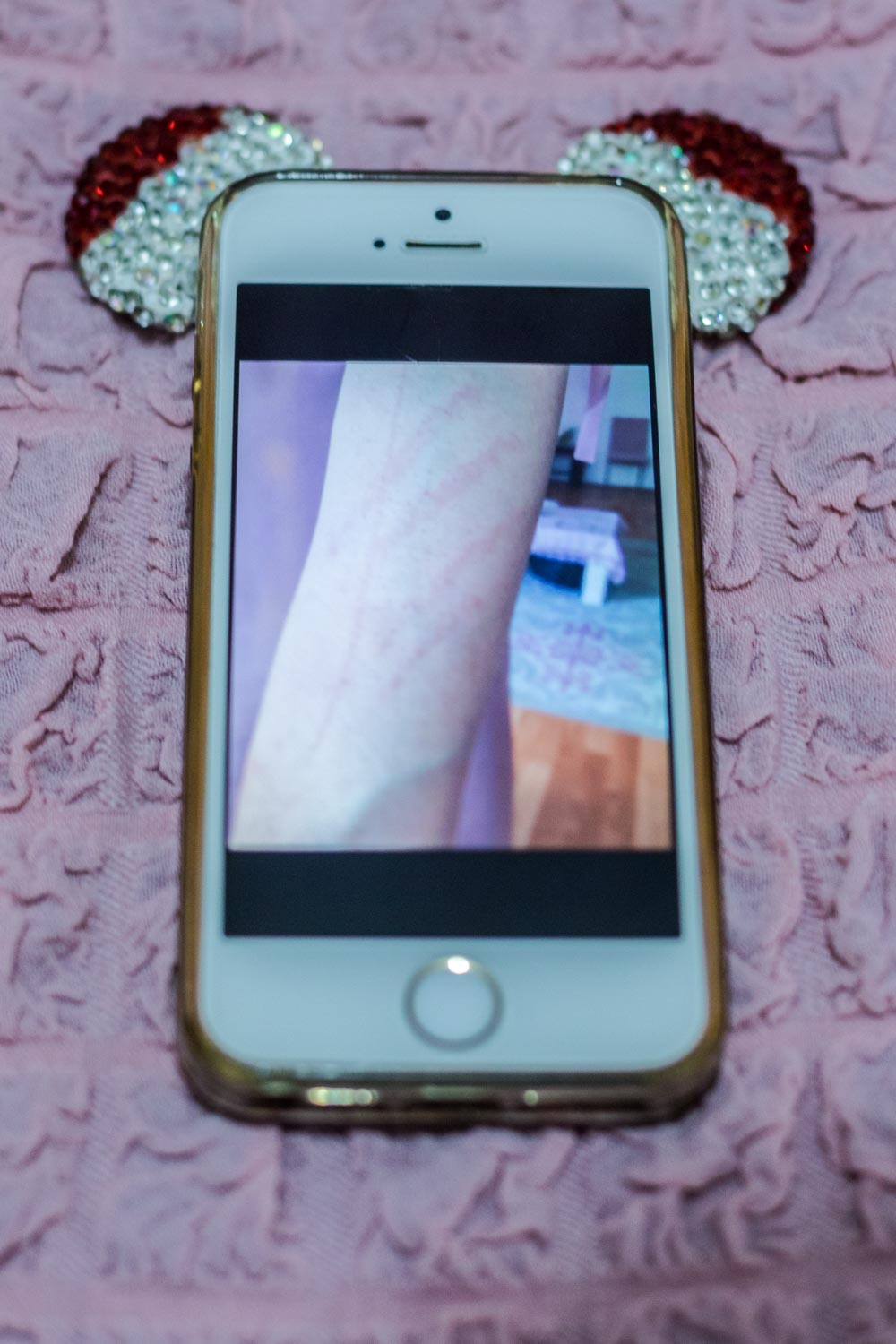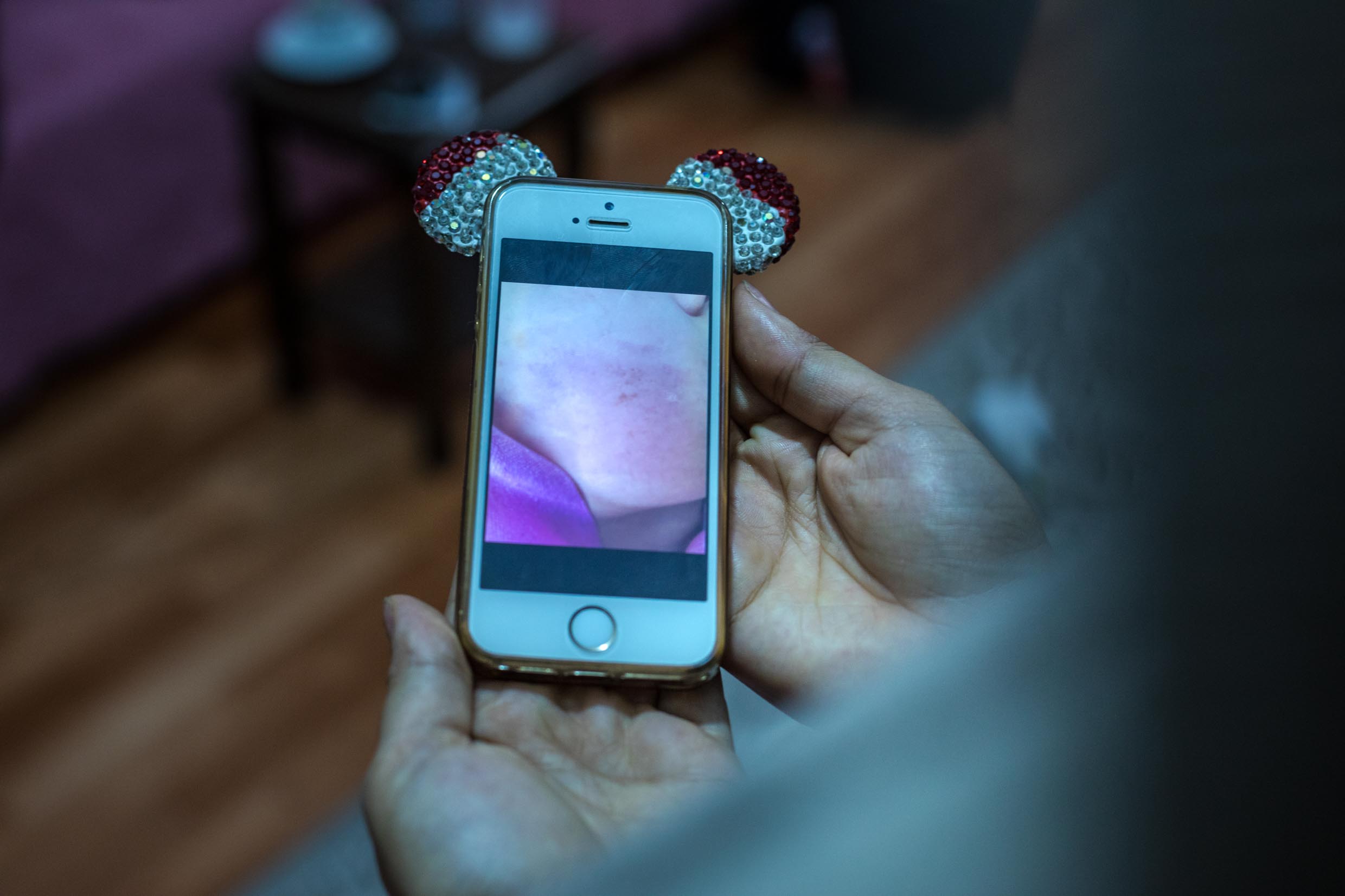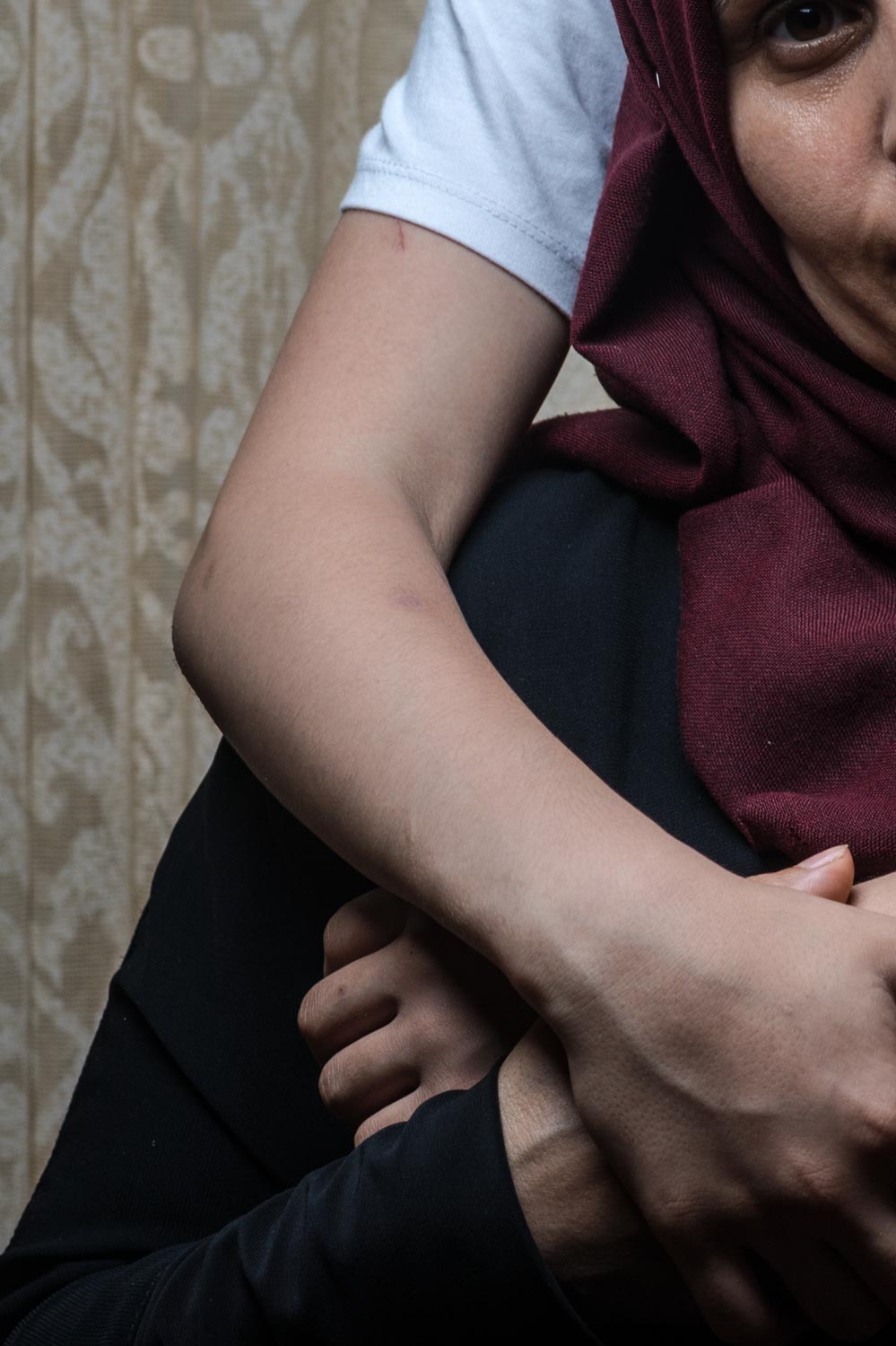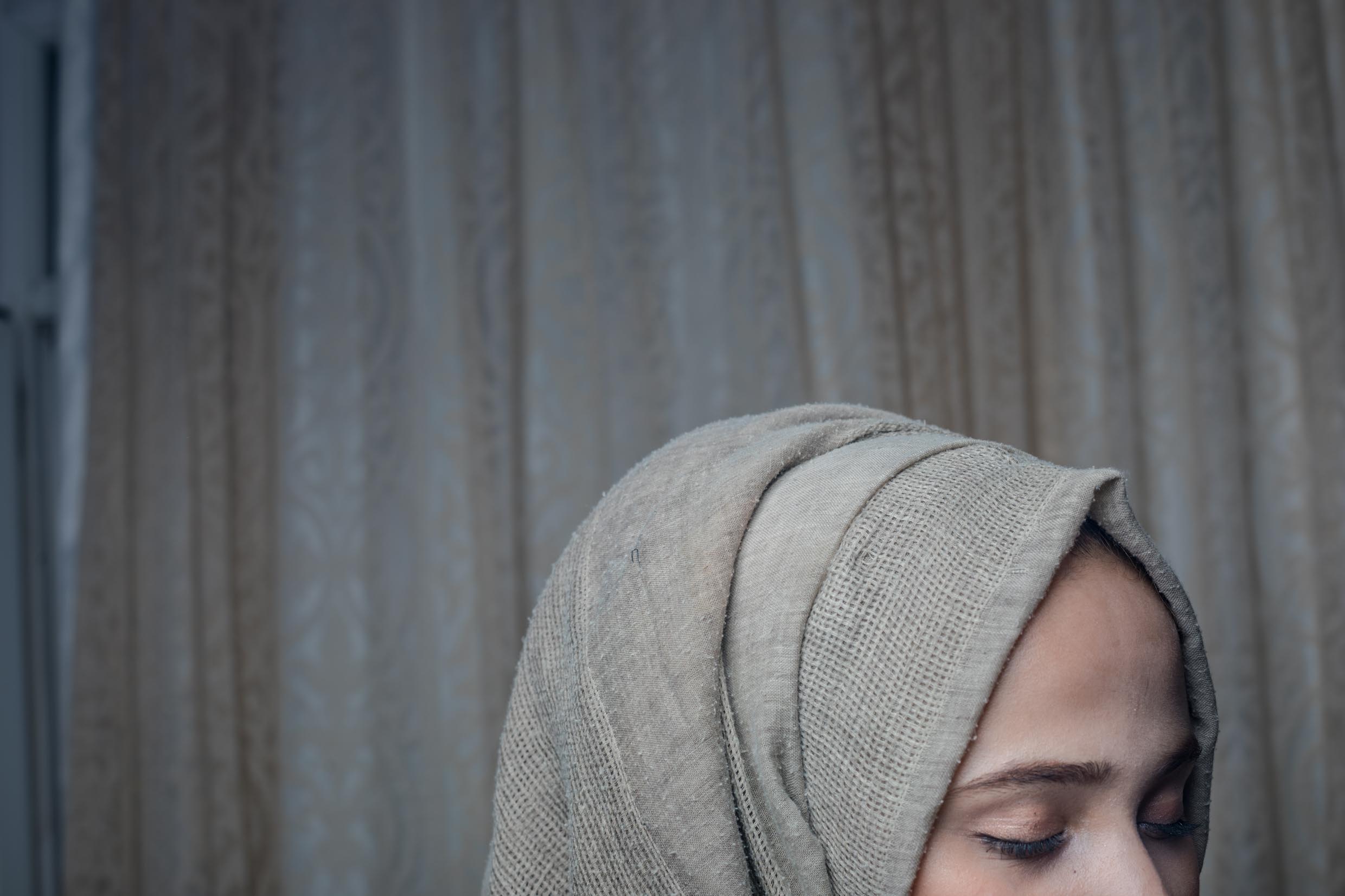from child to bride - Fatima's Story
istanbul, turkey
BY ida brink & martin thaulow | PHOTOS BY MARTIN THAULOW
It is five o’clock in the evening. The sun is about to set in a poor area of Istanbul known for housing Syrian refugees. It is summer, the air is burning and there is a constant flow of people in the streets. We leave the sizzling crowd and enter an old and decrepit apartment building. On the second floor, a young girl opens the door and leads us to the living room in a small and almost empty apartment. Besides the female neighbours on the couch and the children playing around, there is a mother and her four daughters. One of them is Fatima.
Fatima is standing in the center of the living room. A light brown hijab covers her hair and she wears her finest long black dress that makes the gold she is wearing shine even more. She is shy, and when our eyes meet, she looks down and hides her smile. She is young and extremely beautiful. One of her siblings places a pink chair in the middle of the room where Fatima sits down. She is silently looking and waiting. She has agreed to meet us and tell the story of her marriage a few months earlier. Back then, she was only 16 years old, and she had no idea that her life was about to turn into a living nightmare.
This is the story of Fatima, one of many young Syrian girls, whose childhood ended way too early when her parents decided to marry her off at the age of 16. She got caught up in a situation of control, isolation and abuse by a young Syrian man and his family. It all culminated after various murder attempts and her escape that followed.
Fleeing the war in Syria
It's 2011 and Fatima lives in Aleppo. She is 10 years old when the war knocks on her door. Fatima’s whole family sit at the dinner table except for one of her younger sisters. Suddenly, a bomb falls and detonates. Miraculously, everybody survives; however, Fatima’s sister who isn’t at the table is severely injured. Their house is destroyed and the family finds themselves internally displaced in Syria. For more than a year they struggle to survive by staying in parks and in schools used as temporary homes for families, until they finally manage to leave Syria.
Fatima is 11 years old when they cross the border to Turkey and she is immediately forced to work. She works at a sewing factory 13 hours a day, and for a monthly salary of 350 Turkish lira. There is no time for school as the family depends on her wages to pay the rent and cover daily expenses. They attempt to get to Europe several times by crossing the Mediterranean, but fail every time. Istanbul becomes their place of struggle.
It was in the beginning of the war when we lived in Aleppo. A plane came. There was fire everywhere. My sister got burned.
They are shattered by poverty but too afraid to go back to Syria. Fatima's mother explains:
"Syria is not a safe place for five beautiful young girls. I love my country and I hope to return one day, but I am scared to go back with my daughters. We lost our home, what can we do? How can we work? If I send my daughters to work, the boys will… you know."
Today in Istanbul, Fatima still works at a sewing factory. Month by month, she takes care of her parents and sisters. Her monthly wage is 1.200 lira, but it is still far from enough to keep her family alive. The rent and electricity alone is 1.400 each month, and on average, the family needs 3.500 lira all together. In order to get the money needed, the mother and the smallest sisters go door to door, asking their neighbours for money.
Fatima’s father works on the streets, playing the flute. On good days, he earns 100 lira, but most days he returns empty-handed. Sometimes he is detained by the Turkish police for working on the streets. Day after day, he drags himself out on the streets on the hunt for money. As time goes by, he gets thinner and thinner. The family can only afford to eat small meals twice a day; tea and bread in the morning, and if possible, a hot meal in the evening. Their bony faces and skinny bodies are living proof of their despair.
When the family came to propose, I thought they were rich and good people. They talked about gold and clothes, but right after the wedding I found out they were liars.
Marrying off Fatima
One day, a young man of 23 and his family come to the apartment to propose. Fatima’s parents are promised the moon and the stars in return for Fatima.
Fatima’s mother glances at her daughter on the pink chair and pauses for a while: ‘I looked at my daughter, she was dead tired… Working since she was 11. Working, working for 5 years. I thought it was time for her to do something good for herself. We decided to let her marry in order to get a better life, maybe… maybe she would be able to eat’.
Fatima’s mother looks down in pain and shame. Fatima touches the golden bracelet around her wrist, then breaks the silence by adding: ‘They turned out to be liars. On the day of the wedding, I was picked up in a van carrying water’.
3 weeks after the proposal, the wedding takes place. It lasts no more than an hour. When asked about the party and the wedding night, Fatima lowers her voice and says she doesn’t like to talk about it.
Her mother talks instead: 'It was not a wedding party, it was more like somebody had died. We were just sitting there. My family tried to dance a bit, just us. When they came to take my daughter, it was like she was an animal'.
The water carrier takes Fatima to another poor area in Istanbul, far from her family. Fatima now lives in the house of her parents-in-law. Cleaning the house is her duty, and only a week after moving in, things change dramatically. Fatima’s husband wants her to clean the kitchen, but when she disobeyed, she was beaten for the first time. The beatings continue for the next two months.
At any small mistake, he tried to do these bad things to me. One time, when I told him I didn’t want to go to his sister’s house, he pulled me around by my hair and beat me.
The escape
It has been almost two months since Fatima got married. Her and her husband Mohammad wake up and realize that the battery in Mohammad’s phone is missing. Water has been spilled on it too. Fatima suspects her parents-in-law for destroying the phone. Making an excuse for Mohammad to confiscate Fatima's phone and prevent her from having contact with her family.
The young couple gets into an argument and starts shouting and fighting. Mohammad turns to his father for advice. His advice is heavy beatings and an attempt to strangle her. Something that has happened before.
'When he beat me up, the family just looked, nobody did anything. When he put his hands around my neck, I couldn’t breathe' Fatima recalls.
That evening, Fatima ends up severely beaten, humiliated and locked up in a room. At night, she manages to open the door with a knife. She is running in her torn clothes, bare footed in the dark, and with her father-in-law chasing her through the streets. Luckily, her escape is a success.
Back in the apartment in Istanbul, the golden bracelet seems to be more and more eye catching as the story unfolds. It turns out to be the last battle of the failed marriage. The gold was given to Fatima as a wedding gift. Mohammad and his family want to have it back in return for divorcing her.
My daughter's future is broken. She is a child. I don’t know what to do now. If our situation doesn’t improve, my youngest daughters have to work too. I ask God to help us.
Fatima’s mother offers advice to all mothers: ‘No matter how your situation is, whether you are poor or from a family that doesn't have anything, endure it! It's not logical to let your daughter marry to make things easier for yourself. And especially a young girl at the age of 16. Your child.'
Fatima’s hands clearly show the traces of years of hard work. Her eyes looks tired after telling her story, and she is exhausted from the 13 hour shift at the sewing factory that day. She is leaving us with the final words, ‘At work, I feel like I’m an animal. I miss going to school.'
Postscript
Fatima was married off at age 16 as a consequence of hunger and poverty, leaving her in an abusive relationship and despair. Her parents saw it as the last option for a better future for one of their daughters and as one less mouth to feed. Fatima now seems to be in an even worse situation, and her story is not uncommon.
At Refugee.Today we have interviewed and listened to several under-aged girls who have gone through continuous physical, psychological and sexual abuse as a consequence of child marriages.
The numbers of young Syrian girls getting married before turning 18 is continuously increasing in countries such as Turkey, Jordan and Lebanon. A report made by the Higher Population Council in Jordan states that parents are marrying off their daughters as a result of poverty, the need to be rid of the responsibility and financial burden of protecting the honor of girls, as well as traditions and cultural reasons. Child marriages occurred in Syria before the war started in 2011, but the poverty and unsafe living conditions amongst Syrian refugees have led to an explosion in the amount of Syrian child brides. [1]
The names used in this article are made up in order to protect the persons. Refugee.Today is aware of the persons' identities.
The article is made with the support of DANIDA, The Ministry of Foreign Affairs of Denmark.
